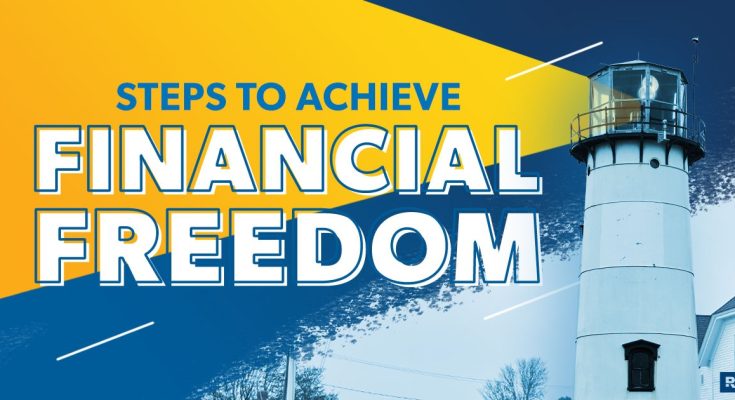Building a life around financial freedom is not simply about accumulating wealth—it’s about creating a sustainable framework that allows you to make choices based on values, not obligations. It’s the difference between working because you want to, rather than because you have to. In business terms, financial freedom is akin to having a well-capitalized enterprise with minimal liabilities and strong cash flow. It provides flexibility, resilience, and the capacity to pursue long-term goals without being constrained by short-term pressures. For individuals, this translates into a lifestyle where money supports purpose, rather than dictates it.
The journey begins with clarity. Financial freedom requires a deep understanding of what you want your life to look like and how money fits into that vision. This isn’t about chasing arbitrary benchmarks or comparing yourself to others—it’s about aligning financial decisions with personal priorities. For example, someone who values travel and experiences may structure their finances to support mobility and flexibility, while another who prioritizes stability and family might focus on home ownership and long-term savings. The key is intentionality. When your financial strategy reflects your values, it becomes easier to stay disciplined and make trade-offs that feel worthwhile.
Income is a critical component, but it’s not the whole story. Financial freedom is less about how much you earn and more about how you manage what you have. This means developing habits that support financial health—budgeting, saving, investing, and avoiding unnecessary debt. In business, cash flow management is often more important than revenue, and the same principle applies to personal finance. A high income can be undermined by poor spending habits, while modest earnings can support a rich and fulfilling life if managed wisely. The goal is to create a surplus that can be directed toward growth, security, and opportunity.
Investing plays a pivotal role in building financial freedom. It’s the mechanism through which money begins to work for you, rather than the other way around. Whether through stocks, real estate, or business ventures, investments generate passive income and build long-term wealth. But successful investing requires education, patience, and risk management. It’s not about chasing quick wins—it’s about building a diversified portfolio that aligns with your goals and risk tolerance. In business, strategic investment drives innovation and expansion. Personally, it creates the foundation for financial independence and legacy.
Debt management is another essential element. While some debt can be leveraged for growth—such as a mortgage or business loan—consumer debt often erodes financial stability. Interest payments divert resources from productive uses and create psychological stress. Building a life around financial freedom means being deliberate about borrowing, understanding the true cost of debt, and prioritizing repayment. In business, excessive leverage can lead to insolvency. In personal finance, it can limit choices and delay progress. Reducing debt is not just a financial strategy—it’s a form of liberation.
Lifestyle design is where financial freedom becomes tangible. It’s the process of structuring your daily life in a way that reflects your financial goals and personal values. This might involve choosing a career that offers flexibility, living in a location that supports your budget and interests, or building routines that reinforce financial discipline. In business, strategic planning ensures that operations align with mission and market. In life, it ensures that your time, energy, and resources are directed toward what matters most. Financial freedom is not a destination—it’s a way of living that evolves with your circumstances and aspirations.
Mindset is perhaps the most underrated aspect of financial freedom. It requires a shift from scarcity to abundance, from reactive to proactive, from short-term gratification to long-term fulfillment. This doesn’t mean ignoring reality or taking unnecessary risks—it means cultivating confidence, resilience, and a sense of agency. People who build lives around financial freedom tend to view challenges as opportunities, setbacks as lessons, and success as a journey rather than a finish line. In business, this mindset drives innovation and growth. In personal finance, it fosters empowerment and peace of mind.
Education is the engine that drives financial literacy and informed decision-making. Whether through formal study, mentorship, or self-directed learning, understanding the principles of finance is essential. This includes everything from compound interest and tax strategy to market dynamics and behavioral economics. In business, financial acumen is a core competency. In life, it’s a tool for autonomy and impact. The more you understand money, the better equipped you are to use it wisely and build a life that reflects your values.
Ultimately, building a life around financial freedom is about integration. It’s not a separate pursuit—it’s woven into how you work, live, and relate to others. It’s about creating systems that support your goals, making choices that reflect your priorities, and cultivating habits that sustain your progress. In business, this kind of integration leads to sustainable success. In personal life, it leads to fulfillment, flexibility, and the ability to contribute meaningfully to others. Financial freedom is not just about having more—it’s about needing less, choosing wisely, and living fully. When money becomes a tool rather than a tether, life opens up in ways that are both profound and practical.


